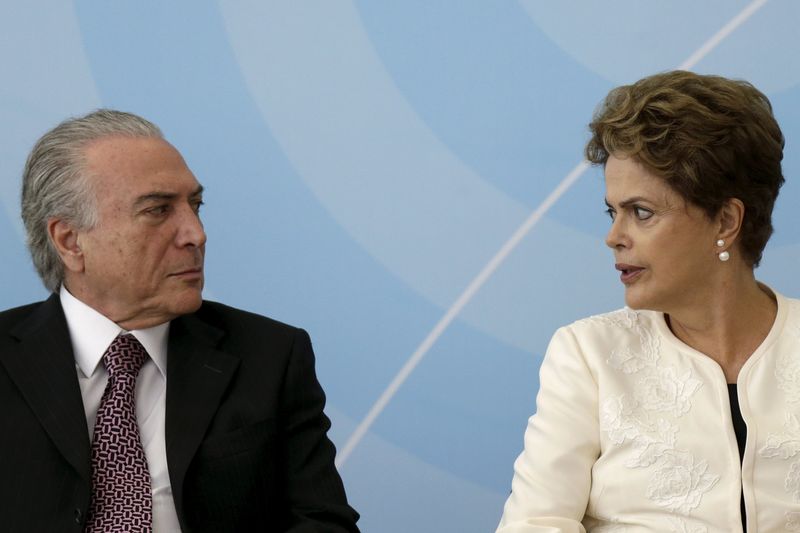BRASILIA (Reuters) - Brazilian Vice President Michel Temer, the man who would replace President Dilma Rousseff if she is impeached, says he is not plotting against her, though his party is split down the middle over supporting her, according to a local report.
In an interview with O Globo newspaper, Temer dismissed speculation that he is planning to abandon Rousseff and take over as president if impeachment proceedings that began last week in Congress remove her from office.
"It really bothers me that they keep saying I am plotting against the president. I have never done that," Temer said.
But he added that his Brazilian Democratic Movement Party (PMDB), Rousseff's main coalition ally and key pillar of her government, is "sharply divided" over whether to impeach her.
The impeachment process was initiated on Dec. 2 by Rousseff's bitter political foe, PMDB Speaker of the lower house Eduardo Cunha, who took up opposition party allegations that she violated budget laws to increase spending during her re-election campaign last year.
The Supreme Court will meet on Thursday afternoon to rule on objections to the impeachment lodged by Rousseff supporters, which led to the suspension of proceedings last week.
If the lower house votes with a two-thirds majority to impeach the president, Rousseff would be tried before the Senate, which would also require two-thirds approval to remove her from office. She would be relieved of office during the trial that can last six months.
Temer said he has resisted pressure from within the PMDB party to bring forward to January from March a convention that could decide to break away from Rousseff's coalition, which would make it virtually impossible for her to govern.
The growing distance between the PMDB and Rousseff's leftist Workers' Party became evident when her civil aviation minister Eliseu Padilha resigned from her cabinet on Dec. 4, reducing to six the number of PMDB ministers, and raising speculation that Temer was positioning himself for a break.
Temer has not publicly stated his position on the impeachment, and it is not clear which way a majority of his party's members will vote in Congress.

The impeachment has further split Brazil's largest and most fractious party, adding to the political turmoil caused by a massive corruption investigation of dozens of politicians, mainly members of the governing coalition, as the country sinks into the deepest recession since the early 1990s.